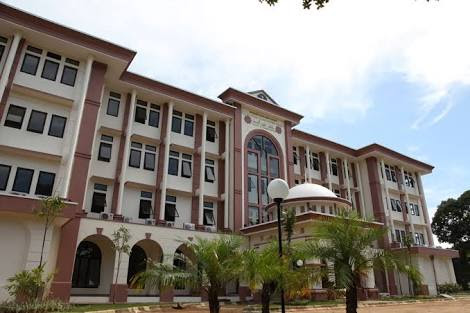PROBLEM-BASED LEARNING WITH SCAFFOLDING TO IMPROVE NUMERACY LITERACY OF JUNIOR HIGH SCHOOL STUDENTS
PROBLEM-BASED LEARNING DENGAN SCAFFOLDING UNTUK MENINGKATKAN LITERASI NUMERASI SISWA SMP
Abstract
Numeracy literacy is crucial because it can help someone understand the role or usefulness of mathematics in their daily lives. Therefore, it is necessary to research to improve students' numeracy literacy. The purpose of this research is to take action and analyze the use of the PBL model with scaffolding to improve students' numeracy literacy. Classroom action research with Kurt Lewwin model which consists of planning, implementation, observation, and reflection. Data collection techniques using tests and observation sheets. The data analysis technique used was qualitative and quantitative analysis. The subjects of this study were students of class VII-D at SMP Negeri 5 Cimahi. Data analysis can be concluded that Problem-Based Learning with Scaffolding can improve numeracy literacy, in cycle 1, we obtained an average value of 65 with a completeness rate of 50% which amounted to 20 students, and those who did not complete there were 20 students or 50%. While in cycle 2, the average score was 73.5 with a 70% completeness rate totaling 28 students and 12 students or 30% were not complete. With the application of the Problem-Based Learning model with Scaffolding, students are more active in participating in the learning process than before the action is given.
Downloads
References
Akhtar, M. (2014). Patterns of scaffolds in one-to-one mathematics teaching: an Analysis. Educational Research International, 3(1), 71–79.
Ashri, D. N., & Pujiastuti, H. (2021). Literasi numerasi pada pembelajaran tematik terpadu di kelas rendah sekolah dasar. Jurnal Karya Pendidikan Matematika, 8(2), 1–7. https://doi.org/10.26714/jkpm.8.2.2021.1-7.
Awami, F., Yuhana, Y., & Nindiasari, H. (2022). Meningkatkkan kemampuan literasi numerasi dengan model problem based learning (PBL) ditinjau dari self confidence siswa SMK. Mendidik: Jurnal Kajian Pendidikan Dan Pengajaran, 8(2), 231–243. https://doi.org/10.30653/003.202282.236.
Gardner, H., & Hatch, T. (1989). Educational implications of the theory of multiple intelligences. Educational Researcher, 18(8), 4–10. https://doi.org/10.3102/0013189X018008004.
Ginting, A. L., Kusuma, J. P., Syarif, M., Niku, E., & Furqorina, R. (2021). Penulisan karya ilmiah & PTK bagi guru KB/TK untuk peningkatan kompetensi guru. Jurnal Sinergi: Pengabdian ummat, 4(1), 11–16. https://doi.org/10.31764/sjpu.v4i1.4868.
Guslisnawati, & Syafitri, E. (2022). Meningkatkan kemampuan literasi numerasi siswa melalui penerapan model pembelajaran PBL berbasis stem. Jurnal Mathematic Paedagogic, 7(1), 62–71.
Han, W., Susanto, D., Dewayan, S., Pandora, N., Miftahussururi, Nento, M. N., & Akbari, Q. S. (2017). Materi pendukung literasi numerasi. In Kementerian Pendidikan dan Kebudayaan. Kementerian Pendidikan dan Kebudayaan.
Lestari, I. S., Zaenuri, & Mulyono. (2022). Literasi matematika ditinjau dari self efficacy dengan menggunakan problem solving learning model dengan strategi scaffolding. Jurnal Inovasi Sekolah Dasar, 9(1), 27–35. https://doi.org/10.36706/jisd.v9i1.17091.
Nazmai, Y., & Veni, V. (2022). Pencapaian kompetensi literasi numerasi siswa dengan model problem based learning. Jurnal Kepemimpinan Dan Pengurusan Sekolah, 7(3), 394–399. https://doi.org/10.34125/kp.v7i3.853.
Patriana, W. D., Sutama, & Wulandari, M. D. (2021). Pembudayaan literasi numerasi untuk asesmen kompetensi minimum dalam kegiatan kurikuler pada sekolah dasar muhammadiyah. Jurnal Basicedu, 5(5), 3413–3429. https://doi.org/10.31004/basicedu.v5i5.1302.
Rohana, D., Sukasno, S., & Purwasi, L. A. (2019). Model problem based learning (PBL) dengan teknik scaffolding terhadap kemampuan pemecahan masalah matematika. Jurnal Pendidikan Matematika RAFA, 5(2), 142–151. https://doi.org/10.19109/jpmrafa.v5i2.4136.
Sa’adah, A., Ningrum, F. Z., & Farikha, N. (2021). Scaffolding dalam pembelajaran trigonometri berbantuan soal hots untuk meningkatkan kemampuan literasi numerasi matematika. Seminar Nasional Pendidikan Matematika UNIKAL, 2(1), 167–174.
Salsabilah, A. P., & Kurniasih, M. D. (2022). Analisis kemampuan literasi numerasi ditinjau dari efikasi diri pada peserta didik SMP. Edumatica : Jurnal Pendidikan Matematika, 12(2), 138–149. https://doi.org/10.22437/edumatica.v12i02.18429.
Setiawan, H., Diah, N., Lestari, S. (2014). Soal matematika dalam PISA kaitannya dengan literasi matematika dan keterampilan berpikir tingkat tinggi. Prosiding Seminar Nasional Matematika, November, 244–251.
Simamora, Y., Simamora, M. I., & Andriani, K. (2022). Pengaruh model problem based learning (PBL) berbasis etnomatematika untuk meningkatkan kemampuan literasi numerasi matematik siswa SMP. Jurnal Matematika Sigma, 8(2), 532–538. https://doi.org/10.36987/jpms.v8i2.3675.
Sri, A. (2022). Peningkatan Kemampuan numerasi melalui problem based learning (PBL) pada siswa kelas VI SDN Oro-Oro Ombo 02 Kota Batu. Jurnal Pendidikan Taman Widya Humaniora (JPTWH), 1(3), 561–582. Retrieved from https://jurnal.widyahumaniora.org/index.php/jptwh/article/view/75.
Wulandari, Nuraina, Fadhilla, M., Saputra, E., & Isfayani, E. (2023). Penerapan metode scaffolding berbantuan soal hots untuk meningkatkan kemampuan berpikir kritis matematis siswa pada materi trigonometri. Jurnal Serambi Ilmu, 24(1), 30–41. https://doi.org/10.32672/si.v25i1.5789.
Yayuk, E., Restian, A., & Ekowati, D. W. (2023). Literasi numerasi dalam kerangka kurikulum merdeka berbasis art education. International Journal of Community Service Learning, 7(2), 228–238. https://doi.org/10.23887/ijcsl.v7i2.56278.
Copyright (c) 2024 Fani Laffanillah Fathurrohman, Harry Dwi Putra

This work is licensed under a Creative Commons Attribution 4.0 International License.

